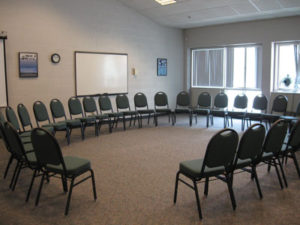
Mindfulness-based stress reduction (MBSR) is probably the best known mainstream mindfulness program out there. It was created in 1979 by the pioneering work of Dr. Jon Kabat-Zinn at the UMASS Medical Center. The MBSR curriculum has been extensively investigated and is the subject of many research studies verifying the great benefits that mindfulness practice has on health and well-being. But what exactly are the things you learn in an 8-week MBSR course?
Here are a few of them.
1. You learn how to approach people and situations with beginner’s mind and greater openness. The most important thing we learn to experience with beginner’s mind is our own experience of being alive. We don’t take anything for granted – not our thoughts, emotions, body sensations, or impulses. Everything we think and feel and imagine can be held, with kindness and curiosity, in our awareness. We open ourselves to experiencing our lives in a less habitual, unconscious way.
2. You learn the importance of questioning the accuracy of your perceptions and seeing things more creatively. How we perceive the challenges in our lives has a lot to do with how we will ultimately respond to them. If we think the traffic jam we’re stuck in, or the relationship problem we’re facing, is all our fault or all someone else’s – it sets us up for either hating ourselves or hating someone else, thus causing us stress and dis-ease. When we free up our perceptions and see the multiple perspectives of any issue, we’re not so caught up in the blame game and have greater freedom to find a solution.
3. You learn to stop and enjoy the pleasurable moments in your life and cultivate a sense of gratitude. Human beings are hardwired to focus on threats – but that hard-wiring means that we will tend to miss much that is already good, pleasurable, and wholesome about our lives. If all we see is what we don’t have, or what might threaten us, then life becomes pretty stressful and not much fun. The good news is that we can train ourselves to really take in all the joyful and pleasurable moments in our lives – even the little ones! – and feel more resilient towards stress as a result.
4. You learn ways to be more responsive to stressful situations and not act on your autopilot reactions. When stressful situations arise, it is quite normal to be at the mercy of our reactive fight or flight tendencies. Arguments, road rage incidents on the one hand, or avoidance and shutting down emotionally on the other. Mindfulness practice helps us stay aware of the unpleasant body sensations, catastrophizing thoughts and painful emotions of stressful situations as they are happening instead of freaking out and losing it. While we can’t get rid of stressful events, we can learn to respond to them with wisdom.
5. You learn to see your thoughts and emotions as events in consciousness, not facts. We tend to believe our thoughts and emotions are always true without questioning them or where they come from. Mindfulness reveals the transitory and insubstantial nature of thoughts and emotions. The greater clarity that comes with mindfulness practice helps us to, not ignore thoughts and emotions, but to see them as highly conditioned and temporary experiences which we can choose to follow, investigate, or let go of.
6. You learn to communicate more effectively with others by practicing presence, empathy, and kindness. By staying connected to body, mind, and heart during a conversation, we establish a greater presence which can help us really understand what someone is telling us – which also helps us communicate more intuitively, authentically, and with greater kindness than a default autopilot conversation does.
7. You learn mindful consuming by noticing your intentions and when ingesting something like food or media becomes too much. We are all consumers: consumers of food, drink, media, time, environments, people, and so on. Everything we consume has an effect on our body, mind and nervous system. Mindful consuming means we pay attention to what we take in and to what effects it has on us. Harmful effects are something we can begin to notice, so that we can make wiser and more sustainable consuming decisions.
8. An 8-week class in mindfulness-based stress reduction is just the beginning. Our practice deepens over time as we cultivate our own inner resources for health, healing, and wisdom. There are many ways to continue a mindfulness practice, and we share practical strategies and resources for continuing to practice mindfulness in your everyday life.
You can sign up for the next MBSR class in Berkeley CA on June 5 by clicking this link: https://www.stressreductionatwork.com/berkeley-mindfulness-class/
